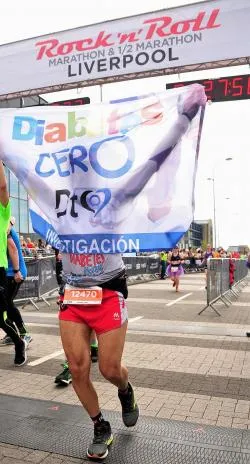Diabetes, obesity and overweight cause about one million new cases of cancer a year throughout the planet and have managed to unseat tobacco as the main risk factor.
According to a study led by Imperial College in London and publishes The Lancet Diabetes Endocronology, having a high body mass index and being diabetic, two metabolic diseases related to lifestyle, only in 2012 they were behind 6% of cancersDiagnosed throughout the planet, this is 800,000 new cases.
To reach this conclusion, the researchers analyzed the data for 12 types of cancer in 175 countries in 2012 and combined them with high body mass index statistics- overweight and obesity- and diabetes;They also took into account age and gender of patients.
Among the main results to which they have come, it emphasizes that obesity and combined diabetes are behind 25% of liver tumors and about 30% of those of uterus.
They have seen that the overweight is behind the double of cancers that diabetes: 3.9% of all cases is attributable to a high body mass index, compared to 2% linked to diabetes.
The overweight is behind the double of cancers than diabetes.
Women leave worse stops in this study: almost twice women suffer the effect of the two risk factors- overweight and combined diabetes;The type of cancer they suffer most is breast, which represents 30% of cases.Instead, men suffer above all from liver cancer, with 42.8% of cases.
Overweight and obesity is one of the main health risk factors
Four out of 10 new cases of cancer occur in developed countries, although developing countries are those that have experienced a higher increase in oncological prevalence between 1980 and 2022. In Western regions breast cancer was the most common relatedwith obesity and diabetes and supposed 23.8% of all cases attributable to these two risk factors.On the other hand, in Southeast Asia, for example, about 54% of all cancers associated with these two metabolic diseases was the liver.
Almost double females suffer the effect of the two risk factors- overweight and diabetes- combined;The type of cancer they suffer most is breast, which represents 30% of cases.
According to the World Health Organization (WHO), the number of people with diabetes has increased from 108 million throughout the planet to more than 400 million in 2014. With regard to obesity and overweight, the figures are even less flattering:Only last year there were 1900 million overweight people in the world, of which 650 million were obese.In this sense, Spain is the second country in Europe with more obese, one in four Spaniards is overweight or is obese.A high body mass index is related to pancreatic cancer, kidney, liver, uterus, breast and ovary, among others.
And the forecasts estimate that these numbers will remain upwards, so researchers warn that cancer cases attributable to these risk factors will shoot 30% in women and 20% in men by 2035.
Diabetes, an upward risk factor
For years it is known that there is a relationship between obesity and overweight, and cancer.On the other hand, the association between tumor development and diabetes is relatively recent."Our study shows that diabetes, alone or in combination with obesity, is responsible for hundreds of thousands of cancer cases a year throughout the planet," says Jonathan Pearson-Stuttard, a researcher of the ImperialCollege of London and main author of this study.
Most new cases of diabetes are of type 2, linked to the stylelife.
However, the relationship between diabetes and cancer is still a mystery.Researchers point out that it could be due to high levels of insulin or glucose, chronic inflammation or hormonal disruption that the disease entails.
Scientists have observed that one in four new cases of cancer in 2012 were due to the increase in the prevalence of diabetes between 1980 and 2002, compared to 30% caused by obesity and overweight.Diabetes is associated with colorectal, pancreas, liver, breast and uterus cancer.
Most cases of diabetes are of type 2, closely linked to a poor diet, a lack of physical activity and excess weight.And diabetes is related to cases of colorectal cancer, liver, pancreas, breast and uterus.It is not that diabetes itself causes cancer, but increases the risk of certain tumors.
Food -rich food is a risk factor for obesity and some types of cancer.
Given these data, researchers claim that it is urgent that public health policies are launched that identify effective prevention, control and review measures.Also that campaigns are carried out to promote the consumption of healthy foods, reduce the intake of junk food, and encourage an active lifestyle.




